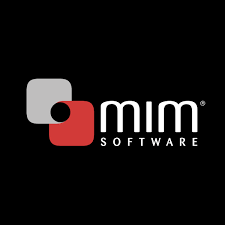
Our collection of resources based on what we have learned on the ground
Resources
Q&A
What are the distinctions between the different types of foreign investment into...

- May 2014
- Free Access
Foreign investment into India takes one of two principal forms: Foreign Direct Investment (FDI): The acquisition of shares or other securities in an Indian company. Foreign Institutional Investment (FII): Investment by foreign institutional inves...
Q&A
How did the definition of ?control? get changed in India and how does it apply t...

- May 2014
- Free Access
The broadened definition of ‘control’ now includes not only the power to appoint a majority of directors, but also the ability to control the management or policy decisions via shareholding, management rights, shareholder agreements or...
Q&A
How did the foreign direct investment (FDI) reforms in India affect the single a...

- May 2014
- Free Access
The previous FDI policy only permitted one non-resident entity with ownership of a brand (or rights to a brand) to invest in Indian companies engaged in the retail trading of that brand. The reform policy now allows multiple non-resident entities ...
Q&A
How are prices determined for shares issued by Indian companies?

- May 2014
- Free Access
The issuance of shares by Indian companies falls under the compliance guidelines outlined in the Foreign Exchange Management Act (FEMA). Companies seeking capital through the public route should base the issuance price on Securities and Exchange Boar...
Q&A
Which changes will take place in India this year (2014) due to the foreign direc...

- May 2014
- Free Access
A number of changes in FDI caps have already been hinted at for this year. FDI caps and foreign institutional investors (FII) prohibition in the defense sector may soon be relaxed for investment promoting the development of ‘state-of-art’...
Q&A
Which options do foreign companies have for establishing a business in India?

- May 2014
- Free Access
Prospective foreign companies and investors seeking to take advantage of India’s liberalized FDI caps have choice from four entities that can be established when a business enters India or expands its scope of operations: Liaison offices Br...
Q&A
What are the requirements for setting up a project office in India?

- May 2014
- Free Access
If a foreign company has secured a contract from an Indian company to execute a project in India and has attained the appropriate funding source or government clearance, a project office may be established. One of the following criteria must be met i...
Q&A
What is the process for setting up a project office in India?

- May 2014
- Free Access
If a project office is approved, it should notify the relevant regional Director General of Police within five days of the office’s establishment. Within two months of the project office’s establishment, the overseas company must also sub...
Q&A
What kind of wholly owned subsidiaries can foreign investors establish in India?

- May 2014
- Free Access
Under Indian Law, foreign investors are able to establish wholly owned subsidiary companies (WOS) in the form of private limited companies if they operate in sectors that permit 100 percent foreign direct investment (FDI). With India’s recent r...
Q&A
What is the process for establishing a private limited company in India?

- May 2014
- Free Access
Establishing a private limited company can be a lengthy and complicated process involving multiple steps: First, a minimum of two directors must be appointed and registered through India’s e-filing system for the establishment of a priva...
Q&A
Are corporate entities subject to tax on the distribution of dividends in India?

- May 2014
- Free Access
Yes, corporate entities are subject to a tax on the distribution of dividends. However, in the case of shareholder dividends, the associated income is exempt from tax. The current effective rate of the Dividend Distribution Tax (DDT) is 16.995 percen...
Q&A
What does Minimum Alternate Tax (MAT) entail in India?

- May 2014
- Free Access
All companies declaring low or zero profits are subject to the MAT. Presently, MAT is levied at 18.5 percent of book profits plus the applicable surcharges and education cess. The MAT is levied on companies whose tax payable under normal income tax p...
Enquire for more information about our services, and how we can help solve challenges for your organization
Contact UsOur Clients
Discover our esteemed global clients across diverse sectors. We believe in providing our clients with exceptional service and a commitment to being their partner for growth in Asia.
See what our clients say about us



























